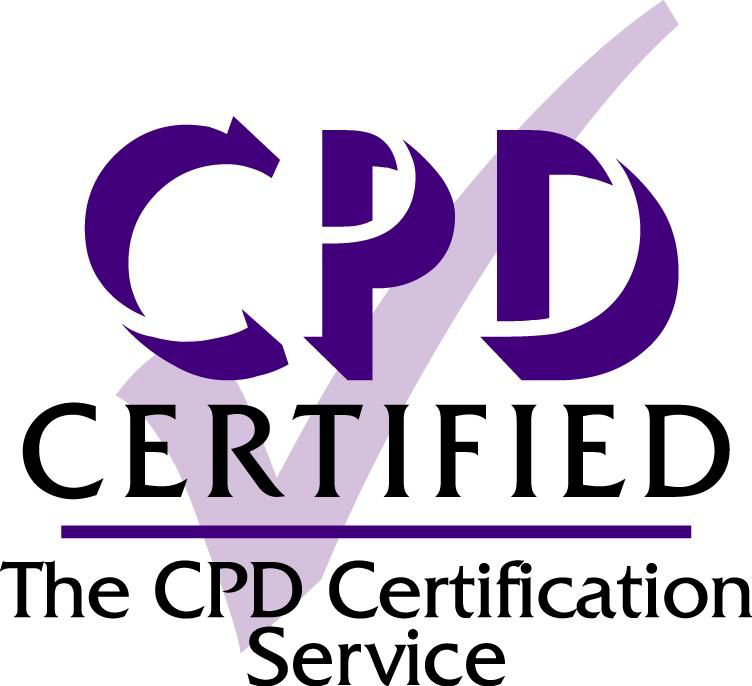
An Introduction to data science for clinicians
This course has been created to introduce clinicians to data science and provide them with basic skills to handle data. The course aims to encourage clinicians to work confidently and effectively with their data.
Course overview
Clinicians are confronted with data every day but often do not have the means or understanding of handling this data correctly. This course will provide delegates with hands on learning experience using tools and knowledge to make correct decisions in handling data, which will result in better quality of clinical research.
With Moorfields and the UCL Institute of Ophthalmology being at the forefront of clinical research, you will be learning from world class clinicians with data science experience who will provide insights into real life clinical data from authentic clinical perspectives.
A further course - 'Data science for clinicians: Intensive course in R' - is available for those wishing to further develop their skills on completion of this course. Please see the course fees section of this page for details of the discount available if both courses are purchased together.
You can hear more about both courses by watching the short video below:
Course structure
This is an online course which includes an estimated 16 hours of self-paced learning with a live live evening Q&A session with the contributors to conclude. You will work through five course sections. The Q&A session will be repeated on different dates throughout the year as people complete the course. The next date is not yet confirmed. Once you have purchased this course you will be enrolled manually and receive instructions explaining how to access it.
The course sections are as follows:
1. Introduction to data science - taught by Olivia Li and Meriam IslamThis course section will explore the following questions and topics:
- What is clinical data?
- Why should clinicians understand data science?
- Data and telemedicine
- How will data transform clinical practice?
- What is a data base?
2. Coding and computer languages - taught by Peter Woodward-Court and Abraham Olvera
This course section will give an overview about coding and computer languages and explore why coding can be useful in times of excel.
- Introduction to coding / computer languages
- Which computer language to choose?
- Overview over most commonly used computer languages
- Useful online resources and how to use them
3. Common statistical tests and challenges with clinical data - taught by Howard Maile and Iris Kleerekooper
This section explores commonly used statistical tests and models in clinical data. Although some of the basics will be repeated, this course section does not intend to replace a statistical course and therefore requires some basic statistical knowledge.
4. Commonly encountered errors/ misconceptions in statistics - taught by Nikolas Pontikos
Going further, this course section will explore commonly encountered errors in statistical testing in a clinical setting. This course section also requires basic statistical knowledge.
5. Principles of data visualisation - taught by Tjebo Heeren
This course section will explore the principles of good data visualisation. Participants will learn about the idea of aesthetics, scales, use of color and the concept of data ink. Common visualisation "errors" or "sins" will be discussed. This course will not discuss the technical details how to create graphs. If you want to learn how to produce high quality graphs with the computer language R, we recommend to take the course 'Data science for clinicians: Intensive course in R'.
Who should apply
This course is intended for junior doctors and allied health professionals (including nurses, optometrists, health technicians) who work clinically and are keen to learn how to use data for academic work, particularly involving Big Data and Artificial Intelligence. It is also suitable for researchers and students undertaking scientific & medical research.
CPD certification
CPD points and a certificate of attendance will be awarded at the end of the course.
The content of this course has been certified by The CPD Certification Service as conforming to continuing professional development principles. The course carries 16 CPD hours.
Requirement
In order to access the programme online, you will need access to a computer (laptop or desktop) with a webcam and microphone for the Q&A session.
Enrolment
This course is hosted on UCLeXtend, UCL's learning platform for professional education. This platform is not linked to the Moorfields Education website and so enrolment for this course is carried out manually rather than being automatic upon purchase. There may therefore be a delay between the time of your purchase and the receipt of login details for the course.
Book Now
| Date | Location | Time | Seats | Price | |
| Course available to start any time | Online | A link to access the course will be emailed | £350.00 |
Course fees
Taught by
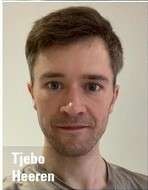
Tjebo Heeren
Tjebo F.C. Heeren is an Ophthalmic Surgeon at Moorfields Eye Hospital, London, UK. He was born and raised in Germany, where he also trained. His formal postgraduate studies at University College London started in 2017 and will soon finish in 2021. He has published more than 80 peer-reviewed articles, the majority of which was about a condition of the human eye, macular telangiectasia type 2. Tjebo has a developed an avid interest in data analysis and visualisation. He learned coding in R during the postgraduate studies, mainly self-taught. Tjebo is a keen teacher and enjoys sharing knowledge. As such, he is an active member in the online community stackoverflow.com, which is a platform for people with questions about coding. Tjebo speaks eight languages in varying degrees of fluency, and is a dedicated amateur musician, playing the violin and viola, in several orchestras and chamber music groups. He also is a keen road cyclist, although it is not always easy to find the way out of London’s streets.
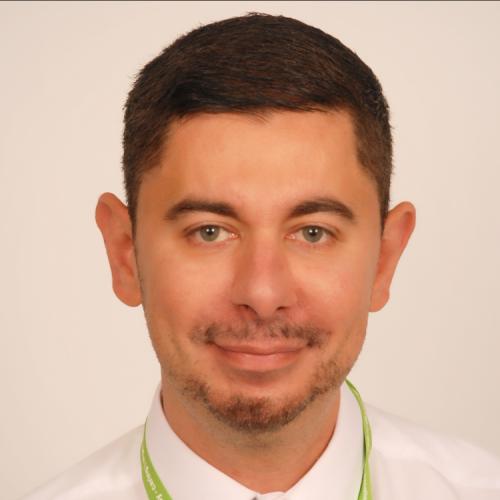
Konstantinos Balaskas
Consultant Ophthalmologist and Director of the Moorfields Ophthalmic Reading Centre (since November 2017): Since taking up the role of Director of the Moorfields Reading centre, I have been working to establish the Reading Centre as a pioneer in the Big Data and Artificial Intelligence ecosystem through academic and commercial collaborations, including with Google DeepMind. Novel, efficient methods of image grading are being developed through the AI pipeline allowing faster turn-around and enabling exploratory projects on novel biomarkers of response to treatment for retinal disease. Service Delivery Research and Implementation Science: I have a keen interest in new ways of delivering care in Ophthalmology, including with tele-medicine, ‘virtual’ clinics and Artificial Intelligence. I have led two national research projects in the UK funded by the National Institute of Health Research looking at novel care models for Ophthalmology patients, exploring the role of modern imaging and digital technologies. I am developing the role of the Reading Centre as a tele-ophthalmology hub in the context of novel models of care, including ‘virtual clinics’, AI and home-monitoring. Principal Investigator for Clinical Trials: I have received national recognition as one of the Best Principal Investigators for Clinical Trials in the UK for three consecutive years. This has equipped me with in-depth understanding of the challenges of research governance and clinical trial set-up and monitoring. I am bringing this knowledge and expertise into my current role as Director of the Moorfields Reading Centre.
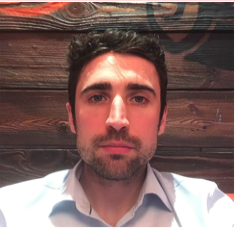
Howard Maile
Howard Maile holds a BA Computer Science (Oxford University), MRes Medical Imaging and Robotics (Imperial College) and is a PhD candidate in Machine Learning applied to Keratoconus detection and progression (UCL IoO).
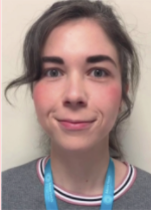
Dr Meriam Islam
Meriam Islam was educated in London at Guy’s Kings and St Thomas’ Medical School, and continued her medical training in South London. She is a specialty registrar based in London, with a keen interest in digital health, which she firmly believes is the future of eye health. She is currently focusing her efforts on home monitoring of patients with macular disease her role as a Topol Digital Fellow at Moorfields Eye Hospital.
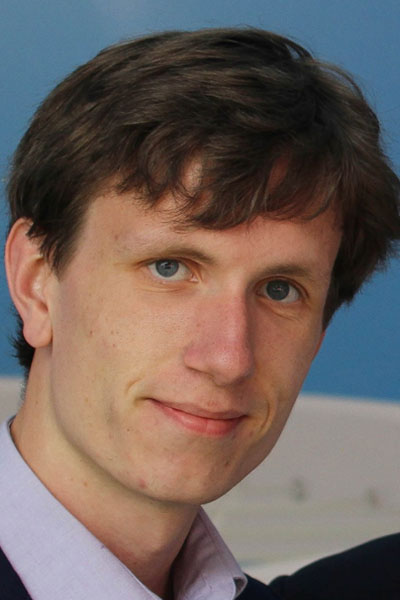
Peter Woodward-Court
Peter Woodward-Court is a clinician currently undertaking a PhD in AI Enabled Healthcare Systems. He graduated in Medicine from UCL, and after completing the foundation programme at Oxford he moved back to London to complete a Masters in Computer Science. His interests lie in image classification models and the application of these in the clinical environment.
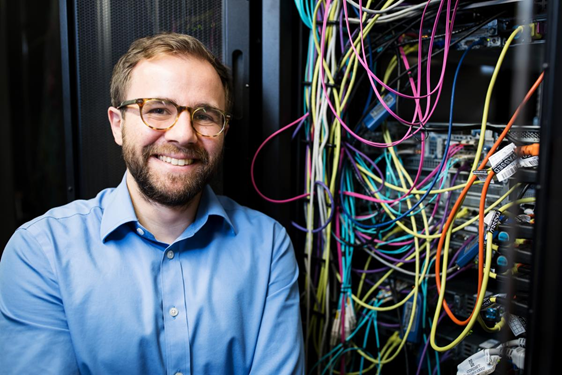
Nikolas Pontikos
Nikolas Pontikos has an MEng in Computer Science (UCL), a MSci in Bioinformatics (Imperial College) and PhD in Statistical Genetics (Cambridge University). He leads a group at the UCL Institute of Ophthalmology working on decision support systems for rare diseases (https://pontikoslab.com/).
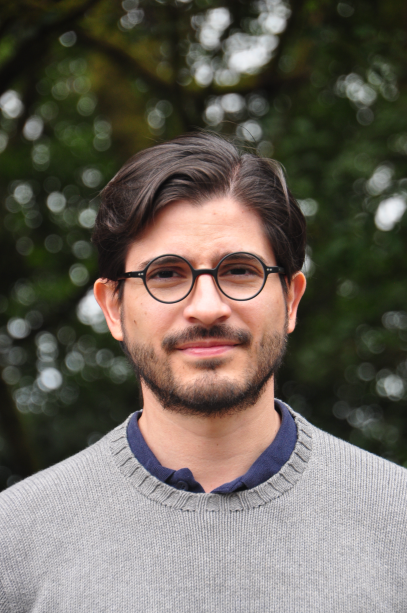
Abraham Olvera-Barrios
Abraham Olvera-Barrios is an Ophthalmologist with special interest in Medical Retina. He is currently undertaking a PhD in Machine Learning prediction of development and progression of diabetic retinopathy (UCL Institute of Ophthalmology). Dr Olvera-Barrios is involved in a wide range of medical retina projects involving big data and has particular interest in population screening of diabetic retinopathy.

Olivia Li
Olivia Li is an ophthalmologist and honorary clinical research fellow at Moorfields Eye Hospital. She graduated from the University of Cambridge and completed her clinical studies at Imperial College. She is undertaking a PhD in utilising and implementing digital innovations including machine learning to support clinicians in diagnosing and managing anterior segment diseases. She also has an interest safe and effective eye care delivery in the post-pandemic era.



